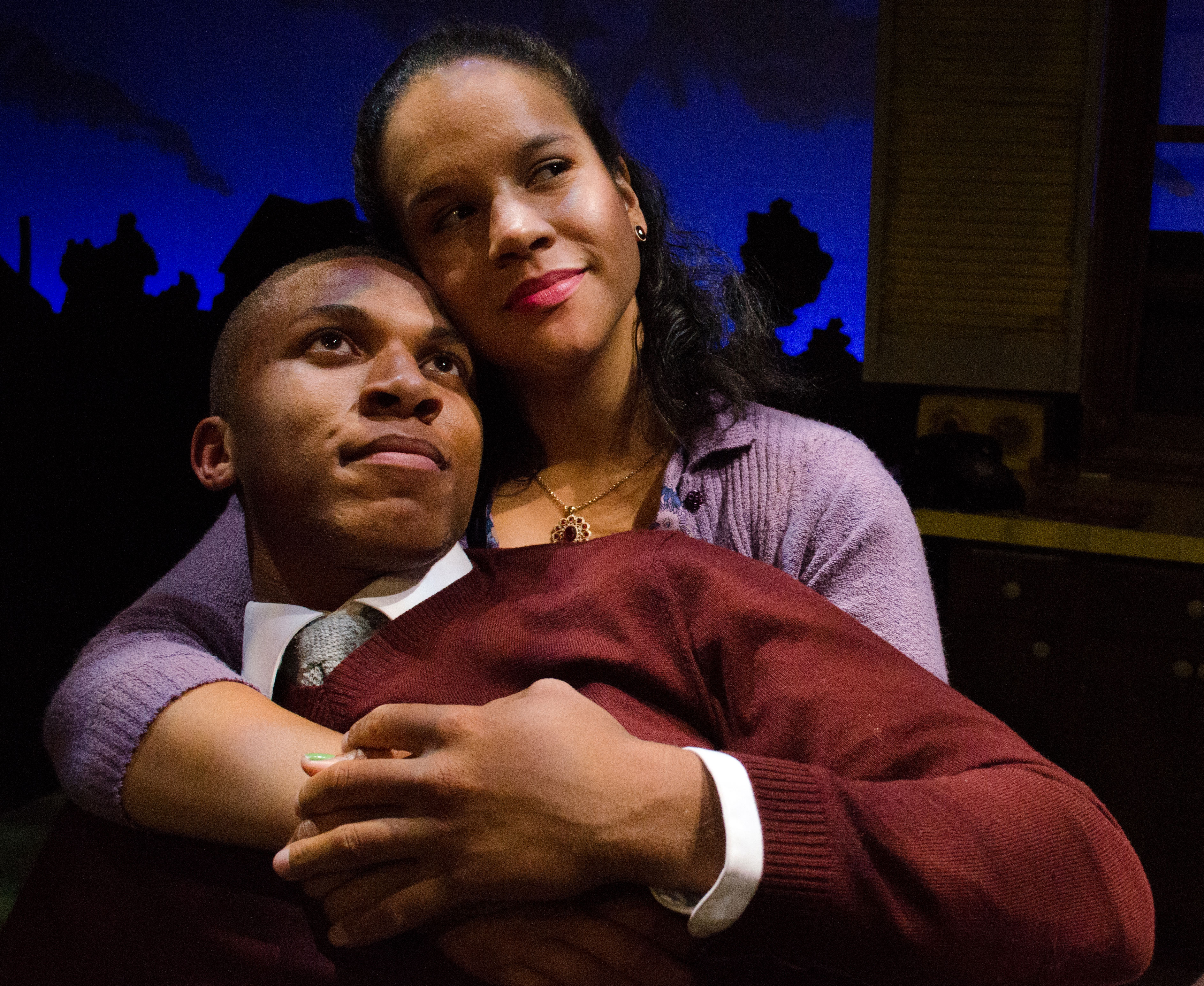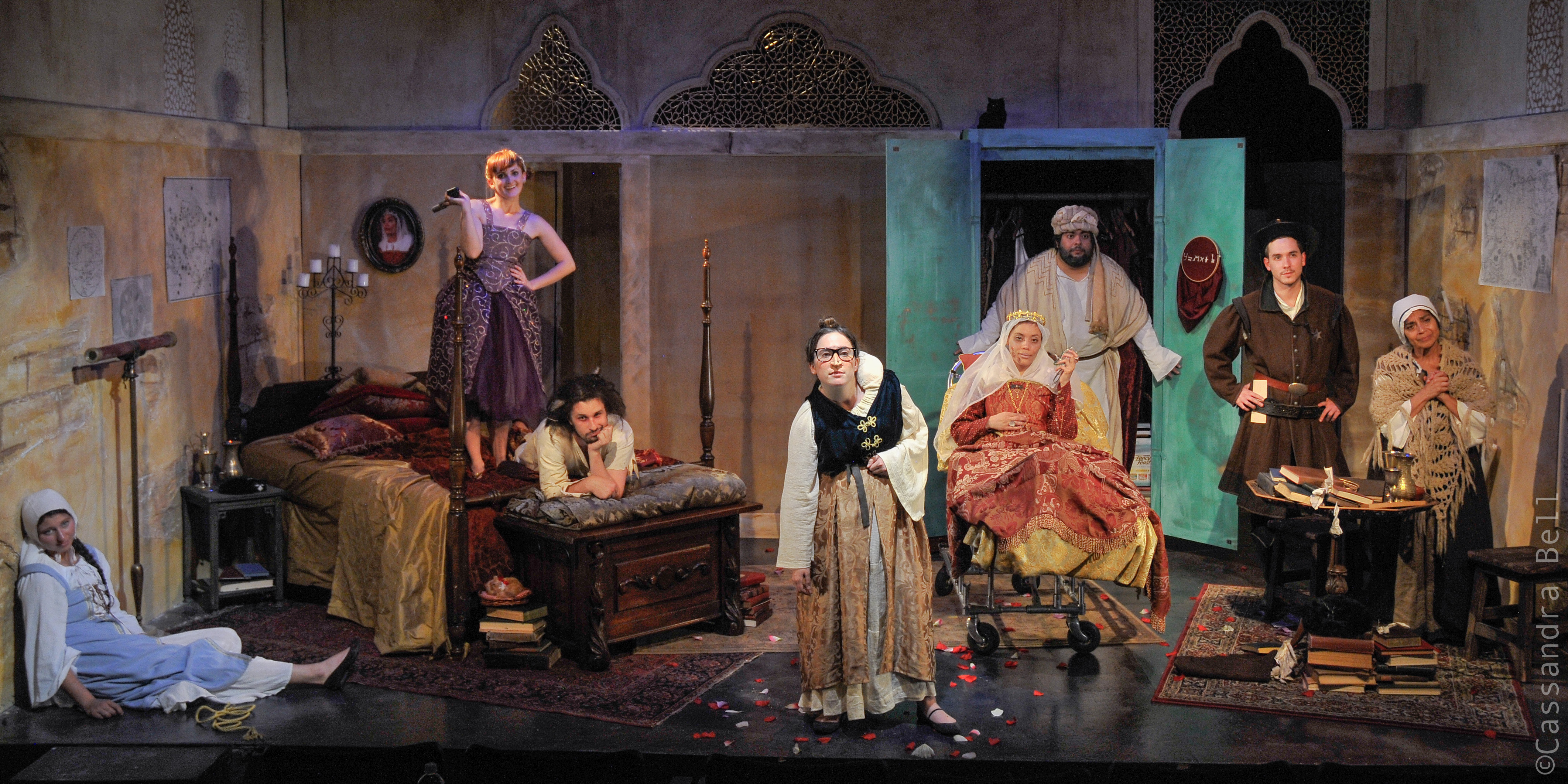There’s an oddly Dickensian patina to a recent morning’s interview with Olympia’s Clarke Hallum, the 11-year-old star of A Christmas Story: The Musical! For starters, I’m hobbling in an overcoat and bowler hat toward the 5th Avenue Theatre, limping and lurching after knee surgery like some infirm Victorian. Then there’s the diminutive actor himself: a rosy-cheeked and chatty Artful Dodger of a boy not yet five feet tall, with the soft brown hair of a field mouse and a smile somehow broader than the width of his face. He greets me at the top of the venue’s grand staircase with a tiny outstretched hand. He’s clearly beside himself in his good fortune, and happy to expound about anything to do with the theater.
Hallum was discovered via videotape, when auditions for the role of Ralphie were thought to be down to just a few lucky experienced prospects from New York. After playing Charlie in a summer production of Willy Wonka and the Chocolate Factory at the Capital Playhouse in Olympia, Hallum thought he’d try his luck for a chorus part in this adaptation of the movie A Christmas Story. When Hallum learned he had a call-back for the lead, he recalls his reaction: “Wow! I couldn’t believe it.”
Hallum won’t be the first to play the BB gun–coveting Ralphie onstage, since the show premiered in Kansas City last year. Based on the pre–World War II Indiana youth of the late writer Jean Shepherd (who also narrated the 1983 film), the production was extensively reworked over the past year—during which time the first Ralphie aged out of the role.
Today, talking with Hallum is like interviewing a Peanuts character. The sixth-grader sits on a couch that nearly swallows him whole, his feet barely touching the floor, though he’s sharp enough to seem like an adult in a preteen body. When I ask what he does when he’s not needed onstage, I expect him to whip out his Xbox or Nintendo. But Hallum prefers to read—particularly about the theaters of World War II, he explains. “I’m definitely more interested in the Western European theater,” he says effusively. “I have The Pacific, which I thought was really good, but I prefer Band of Brothers, even though it all began for me with Saving Private Ryan.”
But singing, not shooting, is critical to this musical production. As director Eric Rosen subsequently explains by phone, “We saw a lot of talented kids. I was in L.A. when I started to hear about Clarke, and everyone said the same thing: ‘You’re not going to believe this kid’s voice.'” I saw a videotape, and the next day he was on a plane to Los Angeles to meet with me over lunch.” In addition to a new score, he explains, the entire Kansas City cast turned over—save for Broadway veteran John Bolton, who plays the comic epicenter of the show as Ralphie’s curse-happy father.
Rehearsals with composers Benj Pasek and Justin Paul have been so intense that my request to see Hallum sing onstage was greeted with polite demurral. Later on YouTube, I discover a treasure trove of Hallum tunefully roaring songs from A Christmas Story during a recent special event at the 5th Avenue. His pipes are every bit as golden as rumor suggests; his size and energy seem ideal traits for a musical Ralphie. And those tidbits were recorded early in the rehearsal schedule.
Says Hallum, “Once I got cast, things started happening pretty quickly. Before the cast rehearsals, I started with private music lessons every day for two-and-a-half hours. After those, we would do the cast songs for four hours—a lot of hard work, but fun.”
He continues, “The thing I love about A Christmas Story . . . is that it’s told from the kid’s perspective. It’s Ralphie’s story, and he wants his gun. Ralphie and I are alike, because we both like to get what we want. And he’s obsessed with Christmas.”
Director Rosen adds some context: “Clarke gets this material on an instinctive level. I don’t have to explain jokes or why something’s funny. He has a pretty good sense of humor himself. We were working with the BB gun in rehearsal one day, and I told him he needed to be careful about where he pointed it—that it needed to be used for indication without any threat of violence. ‘Ah,’ he said, ‘less Full Metal Jacket.'”








